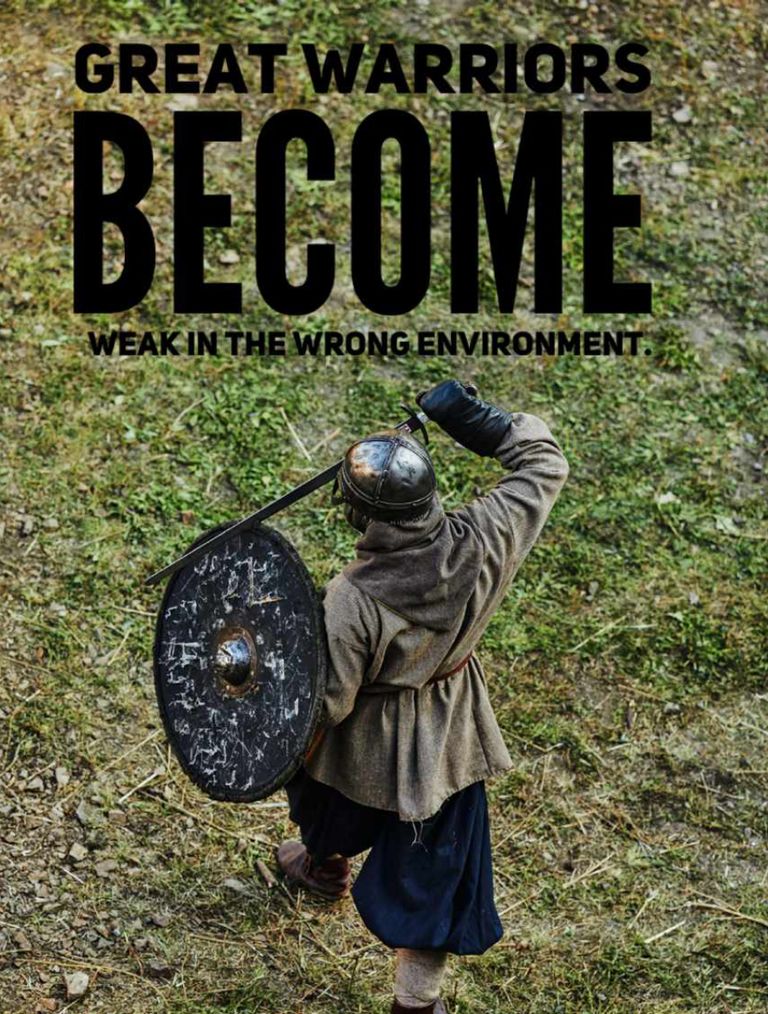
“Hard times create strong men, strong men create good times, good times create weak men, and weak men create hard times.” The quote, from a postapocalyptic novel by the author G. Michael Hopf, sums up a stunningly pervasive cyclical vision of history. The idea, which I have termed elsewhere “the Fremen Mirage” after the science fiction novel Dune’s desert-dwellers, posits that harsh conditions make for morally pure and militarily strong people, while wealth and sophistication make for decadent societies and poor fighters. Dune is just one example of the numerous speculative fiction novels that use the idea, from the Conan stories to dreadful Star Trek episodes. It is so common as a popular theory of history and military power that it has spawned (like most bad ideas) its own genre of internet memes.
It also infects modern strategic thinking, especially about non-Western foes. Perhaps most famously, after the attack on Pearl Harbor collapsed complacent notions of American superiority, the Allied intelligence community swung wildly from the belief in the Japanese as weak and unmanly to notions of how the harsh conditions of training and life in Japan had churned out apparently unstoppable supersoldiers. More recently, the same trope has reemerged in the invincible insurgent, whose upbringing supposedly renders him immune to the deprivations of combat and campaigning. As the University of Birmingham researcher Patrick Porter notes, “commentators have claimed that Iraqis, Afghans, Yugoslavs, Amerindians, Somalis, Turks or Japanese are particularly predisposed to war,” either to justify or caution against military action or diplomatic engagement. Because it contains within it an assessment of the military strength and combative stubbornness of foreign cultures, the mirage naturally brings strategic implications with it.
And, after all, it makes a degree of intuitive sense. Westerners subject their soldiers to harsh conditions to prepare them for the rigors of combat, so why wouldn’t whole societies work the same? Shouldn’t people (although the trope often specifies men) who’ve dealt with hard conditions all their lives make the best fighters, in contrast to the flabby, decadent inhabitants of the glitzy cities?
Except that’s not how things turn out. The divide between supposedly decadent civilization and its supposedly hard and uncivilized opponents reaches back to the development of farming and the state. Early farmers, with their higher population density, seem to have outcompeted their nonfarming neighbors. It seems that in many, perhaps most, cases, it was farmers who expanded, rather than the practice of farming itself, pushing the surviving nonfarmers onto more marginal lands. Likewise, early states, with their complex and specialized hierarchies, generally outcompeted their nonstate neighbors. Urban communities first dominated their countryside and then expanded that dominion outward. Nonstate peoples were often set with a dilemma: develop their own state institutions in order to compete with the brutal efficiency of state violence, or else find themselves violently incorporated into the tributary networks of expanding states. By and large this process was one in which the “strong men” created by “hard times” lost, again and again.
The divide between supposedly decadent civilization and its supposedly hard and uncivilized opponents reaches back to the development of farming and the state.
This doesn’t change in the shift from prehistory to history. Occasionally the frontiers of the zones of urbanized, stratified state-societies broke. Given enough attempts, nonstate people might eventually win. But most of the time, it was the urban armies that were doing the pillaging. Take Rome’s frontiers, the limes, as an example. Rome is, after all, the byword for decadence and decline in Western discourse. Western cultural memory fixes on the Goths, Vandals, and Huns who broke the Roman frontier, but it is quick to forget the rather longer list of nonstate peoples broken by the Romans. The Samnites, Cimbri, Teutons, Ambrones, Helvetians, Eburones, Arverni, Celtiberians, Lusitanians, Pannones, Dalmatae, Catuvellauni, Iceni, Marcomanni, Quadi, Iazyges, and all of the other “hard” peoples crushed under the Romans do not become household names. Most successful large states in history can boast similar butcher’s bills.
https://foreignpolicy.com/2020/05/02/hard-times-dont-make-strong-soldiers-warrior-myth/
Do vote @Blurt.Live as your Witness
Posted from https://blurt.live